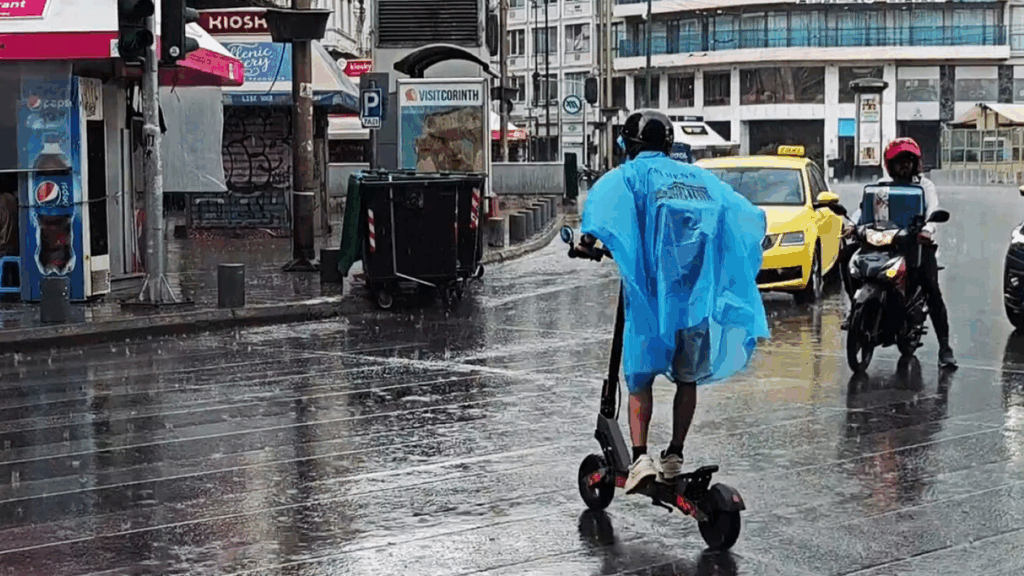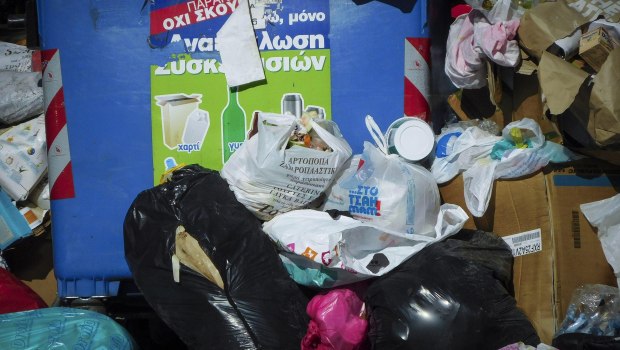From November: Measures to support households & reduce poverty — How famili
Source: ProtoThema English
The Ministry of National Economy and Finance has submitted to Brussels the draft 2026 Budget, which reveals the benefits of the new measures for society, focusing on the middle class and poverty reduction.
The plan provides for tax cuts and financial support expected to improve household incomes through targeted measures starting in 2026.
The draft 2026 Budget, submitted to the European Commission, includes tax relief for households with incomes between €20,000 and €60,000, while poverty is expected to decrease both among the most vulnerable households and across the general population.
According to the General Accounting Office, the implementation of these measures will reduce poverty by 5.5 percentage points for the most vulnerable households, while the overall poverty rate is projected to fall from 16.9% in 2025 to 15.1% in 2026.
The Fiscal Plan details the permanent interventions to be incorporated into the 2026 Budget. These include a rent refund for thousands of households spending 35–40% of their income on housing, and the gradual abolition of the “personal difference” in older pensions. At the same time, the measures include a 30% VAT reduction on remote islands and the suspension of imputed living expenses for new mothers.
In the Fiscal Plan submitted by Athens, the General Accounting Office lists, “measure by measure,” all the new permanent interventions to be included in the 2026 State Budget. A special section also includes calculations addressing the European Commission’s recommendations, estimating how the new measures—starting from November this year—will impact income inequality and social cohesion.
Key Measures:
- Rent refund (starting November) — the most immediate relief for thousands of households spending 35–40% of their income on housing.
- Gradual abolition of the “personal difference” in old pensions, and a €250 allowance in November for low-income pensioners meeting income and asset criteria — one of the most vulnerable groups.
- 30% VAT reduction on remote islands with populations up to 20,000 — addressing high transport costs and protecting insularity. A family in Karpathos or Leros could save €100–150 per month on groceries.
- 30% reduction in imputed living expenses, with suspension for new mothers, freeing thousands of households from tax burdens on nonexistent income. For example, a car owner with a 1,600cc vehicle earning €10,000 per year will no longer have to justify living on €15,000 to tax authorities.
Examples:
- A family with three children and total income of €35,000 will save €800–1,000 in income tax, €400–500 from rent refund, plus additional child tax benefits — €1,500–2,000 total per year, equal to about three months’ worth of food or next autumn’s school expenses.
- A 77-year-old pensioner with an €850 pension and €320 rent gains €320 from rent refund, €100–120 from the end of the personal difference, and €30–50 from tax relief — €450–500 total, about two to three months of supermarket spending.
Changing the “Map” of Poverty
This fiscal intervention totals over €2.7 billion:
- €590 million covers permanent measures announced in 2025 (rent refund and €250 pension bonus), and
- €2.1 billion funds new 2026 measures, including tax reform, new rent-tax scale, and increases in pensions, minimum wage, and public sector salaries.
According to the Budget’s social impact analysis, the biggest beneficiaries will be the 80+ age group, where poverty is expected to fall by 4 points (from 19% in 2025 to 15% in 2026).
For these individuals, relief mainly comes from the abolition of the “personal difference” — the mechanism that froze older pensions to align with lower new ones.
The second group benefiting most are young people aged 15–24, the age group most affected by financial hardship. Today, 22% live below the poverty line, but by 2026 this is expected to fall below 20% (19.8%), meaning 1 in 10 will escape poverty.
By household type, poverty reduction is even more striking:
- Single adults under 65: Currently 24.8% live below the poverty line. After 2026 measures, this drops by 5.5 points to 19.3%. These are often people aged 45–55 who lost their jobs and await retirement; rent refunds and tax cuts are a matter of survival.
- Families with three or more children: Poverty currently 24.8%, drops by 3.3 points to 21.5% — one in seven immediately escapes poverty.
- Couples with one or two children: Traditionally overtaxed, even compared with OECD averages. Poverty falls from 13.9% to 12.3% for one child, and from 15% to 13.4% for two — meaning one in ten families escapes poverty thanks solely to these measures, independent of unemployment or growth effects.
Who Benefits from the Tax Cuts
With the new tax brackets, the largest gains (the “lion’s share”) will go to those earning €20,000+, above the tax-free threshold — mainly the middle class, but also millions of workers, pensioners, farmers, and the self-employed.
The average tax burden will drop by 0.7% across the population, but much more sharply for middle incomes above €30,000.
For a household earning €30,000, the benefit translates into €400–800 less tax per year, depending on income sources, age, and family composition. More importantly, under the new system, any future salary increase will leave more take-home pay, as tax rates are now lower.
As a result, the average disposable income rises for everyone — most notably for those aged 65–79, who see increases of up to 4.6%.
The reduction in rental tax (from 15–45% to 10.5–31.5%) serves a dual purpose: it relieves property owners (often retirees living off rental income) and helps stabilize rent levels for tenants.
In Greece, about 30% of households rent their homes — with lower-income groups disproportionately represented.
Ask me anything
Explore related questions
The original article: belongs to ProtoThema English .



